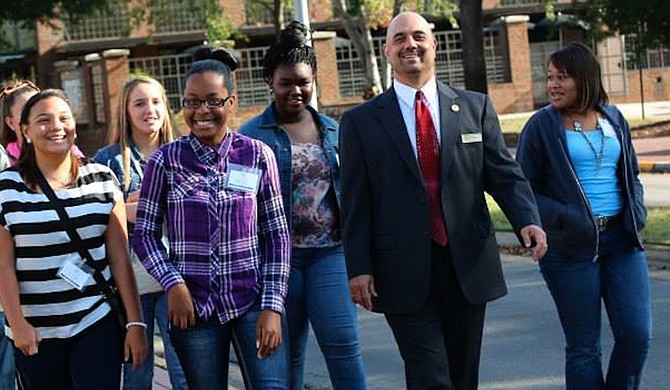While finishing up his doctorate degree at the University of Illinois at Springfield, Ramin Maysami decided to spend two semesters studying abroad in Singapore—he came back nine years late.
Maysami's travels eventually landed him here in Jackson, where he is now the dean of Jackson State University's College of Business. Maysami came to Jackson in June 2014 from the University of North Carolina at Pembroke. Maysami has bachelor's and master's degrees and a Ph.D. from Iowa State University.
In the past year, Maysami has been busy making plans for the business school, one of the largest at Jackson State.
"I approach managing a business school not too differently from managing any other medium-sized corporation," he said.
After polling alumni, community members, students and businesses ranging from mom-and-pops to multinationals, the business school unveiled a new strategic plan.
"We spent a lot of time crafting this document because it will inform the business school's future.
"The College of Business provides an outstanding management education to a diverse student body, which includes those from historically disadvantaged backgrounds," Maysami said. "The college produces ethical, technologically advanced, diverse global leaders who provide creative business-centered solutions that promote economic and social advancement."
In addition, Maysami will periodically revisit the curriculum to make sure graduates of the business school stay ahead and stay competitive. He says many of these changes will come from meeting with the business community.
"These are going to be the people who will hire our students," Maysami said. "We ask them, 'What do you want as a professional quality from someone that you hire? Here is our curriculum. Does our curriculum currently meet that goal, meet your requirements?' If not, we go back to the drawing board and revise our curriculum to meet those goals."
While revisiting the curriculum is important to developing the vision of the College of Business, but in internships, he sees a real chance to give students a leg up against graduates from other institutions.
"Let's say a person is majoring in chemistry. They go, and they sit in classes, and they learn all about (things like the) periodic table. They learn about what happens when you mix this product with that product, but they really learn when they go into the lab, put on gloves and mix the two together to see what happens," he said.
"In our profession, in our education in business, we teach that. Here are the principles of investment. Here are the principles of management. Here are the principles of entrepreneurship. They learn it, but then where is the lab? We have to provide them with a lab through internships with actual businesses."



Comments
Use the comment form below to begin a discussion about this content.
comments powered by Disqus